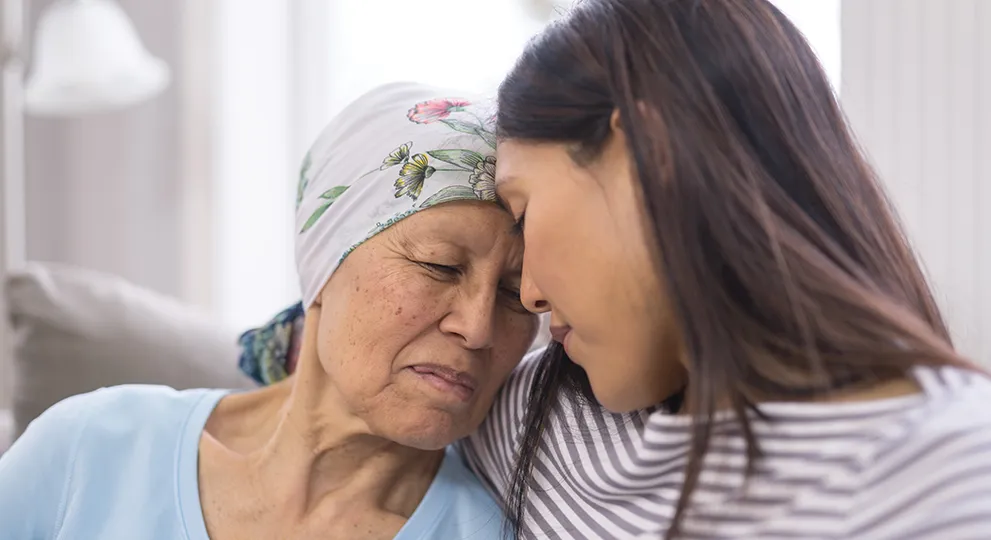Why self-care is so important for caregivers
Why self-care is so important for caregivers

Taking care of a loved one who is living with cancer can be very rewarding. But it can also be stressful, exhausting or frustrating at times. When these feelings build up over time, it can lead to caregiver burnout, or a state of physical, emotional and mental exhaustion.
That’s why it’s important to take care of yourself. Keep reading to learn how to take action toward reducing stress in healthy ways
Signs of burnout
If you’re feeling stressed or overwhelmed, you’re not alone—36% of family caregivers rate their situation as highly stressful. Additionally, 4 in 10 caregivers experienced depression, mood swings and resentment as a result of their efforts.
As a caregiver, you may be so focused on your loved one that you may not realize your own health and well-being are suffering. But being aware of the warning signs of burnout can help you know when to take steps to manage the stress you’re experiencing.
Some signs to look out for include feeling anxious or depressed, experiencing anger or frustration toward the person you’re caring for, being exhausted to the point that it’s difficult to complete daily tasks, having an inability to concentrate and not being able to sleep.
Tips to take care of your mental, physical and emotional health
There are a number of things you can do to take care of yourself and help manage burnout.
- Do something you love—Whether it’s painting, singing or watching your favorite show, make time for the things you’re passionate about.
- Take care of your own health—Meet with your doctor for regular check-up appointments, maintain a healthy diet and establish a good sleep schedule.
- Get regular physical activity—Moving your body is a great way to relieve stress and increase energy.
- Nurture positive relationships—Talk to or meet up with friends and family members who can offer emotional support.
- Ask others for help—You don’t have to do everything on your own. Ask a friend or relative to fill in for you for a few hours so you can have some time to yourself.
- Practice journaling, meditation or yoga—These activities can help you express your feelings in a healthy way and learn relaxation techniques.
- Focus on the positive—Remind yourself of the good things that have happened and give yourself credit for everything you’re doing.
- Set realistic goals for each day—Break large tasks into smaller steps to tackle one at a time. Set a daily routine, prioritize which tasks to do first and then check them off your to-do list.
- Join a support group—A support group can provide validation and encouragement, as well as a listening ear from people who understand what you may be going through.
- Consider short-term (respite) care—In-home services, such as a home health aide or an adult day center, can help take care of your loved one temporarily. A residential care facility may also be able to provide overnight care.
As they say, you can’t pour from an empty cup—so make sure to also take care of yourself while caring for your loved one. Download or print these tips to keep as a reminder.













